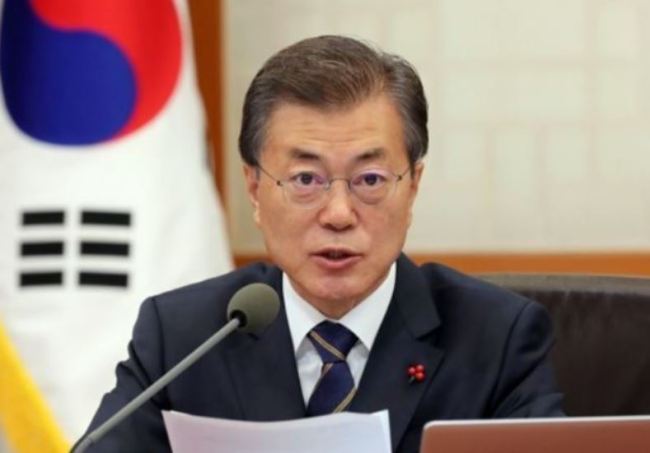 |
President Moon Jae-in (Yonhap) |
Moon Jae-in rose to become president of South Korea during one of its most challenging periods.
Much seems to hinge on his leadership, as the country — fresh off a public revolt against scandal-tainted President Park Geun-hye — has to navigate domestic and external challenges — not to mention its wayward neighbor north of the border that is bent on developing weapons of mass destruction.
Sworn into office on May 10, a day after the election, Moon wasted no time in resuming summit diplomacy, setting domestic policy priorities and presenting a new peace initiative for the Korean Peninsula, while charming the public with his down-to-earth and approachable style.
The lawyer-turned-liberal politician won the election with 41 percent of votes, but he has now gained the support of 68.7 percent of the public, according to the latest survey.
However, his campaign to fight against social evils — his key election pledge — is rattling conservatives who see it as political revenge in disguise.
Park Geun-hye
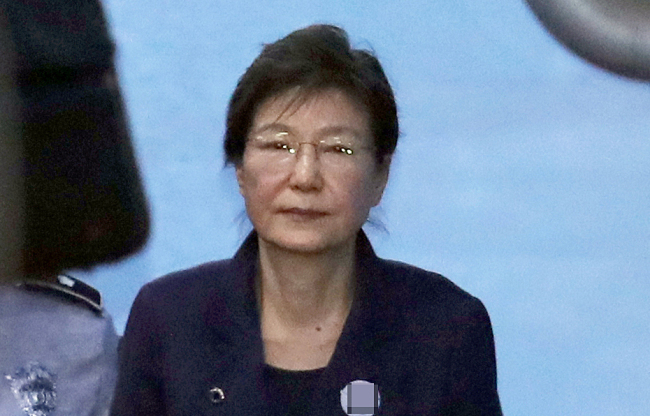 |
Former president Park Geun-hye (Yonhap) |
The spectacular fall from grace of Park Geun-hye — South Korea’s first female president sarcastically called a princess for her royal bearing and aloof attitude — began before 2017 arrived.
But it was in March this year that her removal from office was finalized by the Constitutional Court and her place of residence changed from the Blue House to a prison cell on the outskirts of Seoul.
Now, noticeably vigorless, politically isolated and often publicly ridiculed, Park, 65, is being tried over a total of 18 charges including bribery, abuse of power and the leak of government secrets. She is boycotting the trial, claiming the court is biased against her and she is a victim of political vendetta. Nevertheless, her trial continues and many expect a verdict in early 2018.
Kim Jong-un
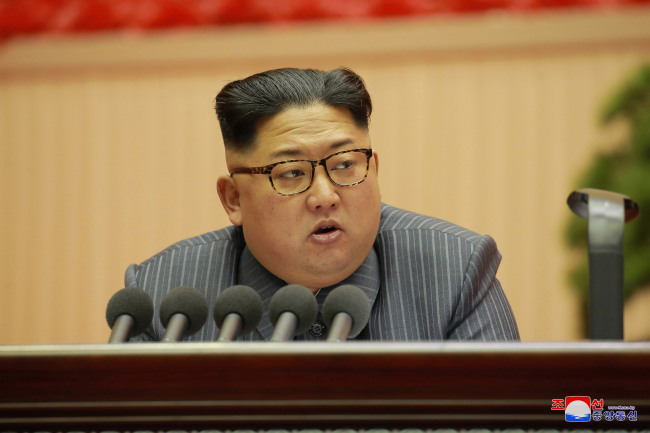 |
Kim Jong-un (Yonhap) |
When Kim Jong-un took on the mantle of North Korea’s leadership in 2011, the world knew little about him, except that he appeared to be in his late 20s and seemed to lack the experience required for the job.
Throughout 2017, however, this enigmatic man commanded the attention of the world like none other, shooting missiles, experimenting with nukes, and trading war threats with US President Donald Trump. In February, he allegedly sent assassins to kill his half brother Kim Jong-nam at a busy airport in Malaysia.
The North’s decadeslong ambition of acquiring a military balance with the world’s greatest power had long been considered domestic propaganda, but it has become a more feasible scenario under Kim Jong-un’s reign.
On Nov. 21, the regime claimed that it had completed its nuclear development and that it now has a nuclear-tipped intercontinental missile that could strike the US mainland. The US and South Korea refuted the claim, but acknowledged that the North is progressing faster than expected.
Donald Trump
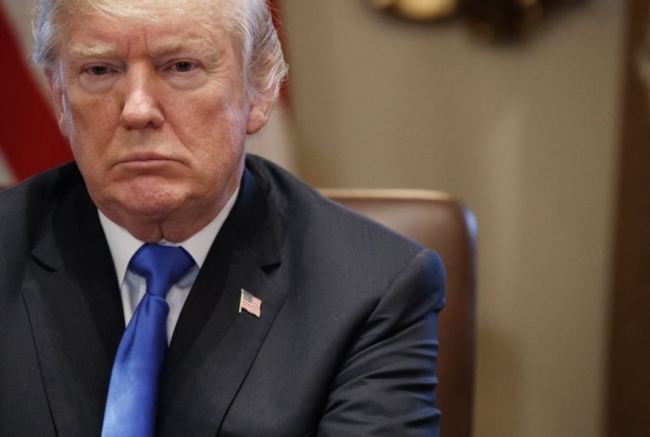 |
US President Donald Trump (AP) |
US President Donald Trump has been turning up the heat on North Korea, one of the crucial policymaking areas of his controversial presidency.
The North’s missile tests and other provocations triggered a slew of Trump’s trademark provocative remarks on the communist country and its leader Kim Jong-un.
Trump warned Pyongyang that Washington would not tolerate what he called “nuclear blackmail.” In a recent statement, Trump pledged a campaign of “maximum” pressure against the Kim regime. Trump reiterated that the US’ goal is to denuclearize the North, saying that it could not allow Pyongyang to threaten the US or its allies with powerful weapons that could lead to a huge loss of life.
He also said that the Asia-Pacific region is being held hostage by Kim’s “twisted fantasies.”
Meanwhile, South Korean President Moon Jae-in is striving to ease tensions on the Korean Peninsula by maintaining close relations with Trump.
Kang Kyung-wha
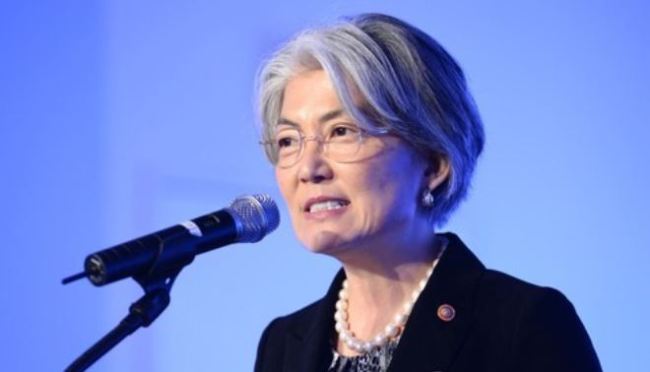 |
Minister Kang Kyung-wha (Yonhap) |
With her silvery hair, impeccable English and an even more impressive UN career, many Koreans were fascinated with Kang Kyung-wha when her nomination as foreign minister was announced.
Her path to the top diplomat post, however, was a little bumpy. The parliament, controlled by opposition parties, rejected her over what they saw as “ethical lapses” in the past.
President Moon Jae-in, only one month into the job at the time, risked a rift with the parliament to appoint her on June 17.
As foreign minister, Kang has taken on the task of untangling a web of thorny diplomatic challenges facing South Korea, involving the US, China, Japan and North Korea.
BTS
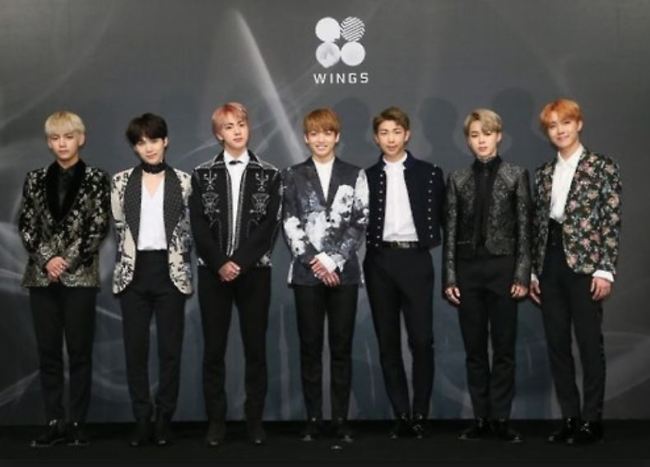 |
BTS (Bit Hit Entertainment/Yonhap) |
2017 has been a notable year for BTS, the most successful K-pop group in history. The seven-piece group that debuted under Big Hit Entertainment in 2013 spent this year making history on charts, receiving awards, collaborating with EDM stars and appearing on US TV shows. The group became the first K-pop group to perform at the American Music Awards in November and the first to win a Billboard Music Award for top social artist in May. The group’s recent single “DNA” peaked at No. 67 on Billboard’s Hot 100, the highest record on the chart for a K-pop act.
Park Sung-hyun
 |
Park Sung-hyun (AFP-Yonhap) |
LPGA sensation Park Sung-hyun became only the second LPGA rookie ever to win the money title, the Rookie of the Year and the Player of the Year honors in one season, after Nancy Lopez. Park rose to No. 1 in the world rankings in November for a week. Before the US stint, Park dominated the Korea LPGA Tour by winning seven times and setting a single-season record with over $1.2 million in earnings.
Kim Sang-jo
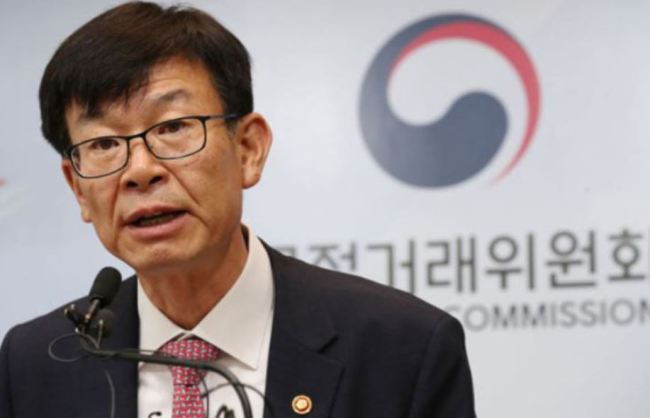 |
FTC Chairman Kim Sang-jo (Yonhap) |
The Moon Jae-in government’s chaebol reform drive came amid intense public calls to eradicate backdoor deals between officials and conglomerates that were laid bare by the Park Geun-hye scandal.
At the center of the chaebol crusade stands the chief of the nation’s antitrust watchdog, who was an activist for shareholders’ rights and an outspoken scholar, which earned him the nickname “chaebol sniper.”
Since taking office in June, Fair Trade Commission Chairman Kim Sang-jo has made it clear that the regulator may have to step in if the chaebol fail to show willingness to reform their opaque governance structures blamed for keeping chaebol scions in power, even with relatively small shareholdings.
Changes are slowly being made, with some conglomerates voluntarily cutting their cross-shareholding structures. But it remains unclear what actions will be taken next year or how harsh the response will be if their actions fail to satisfy the man leading the chaebol reform.
(
khnews@heraldcorp.com)















